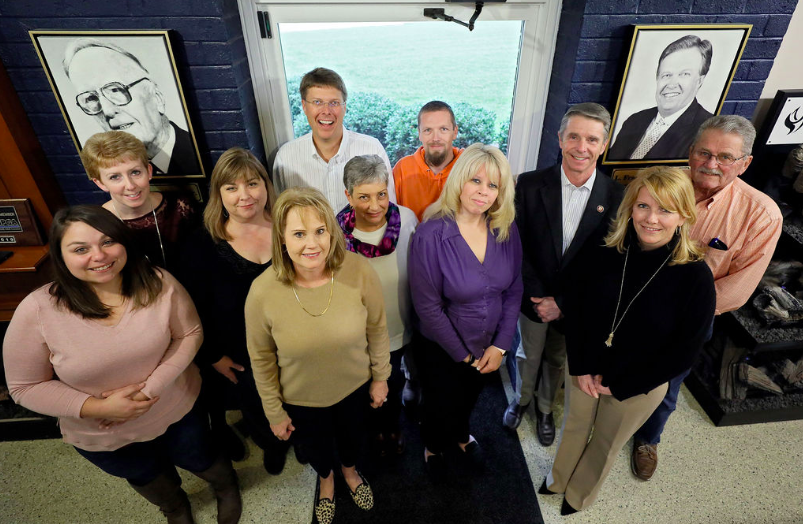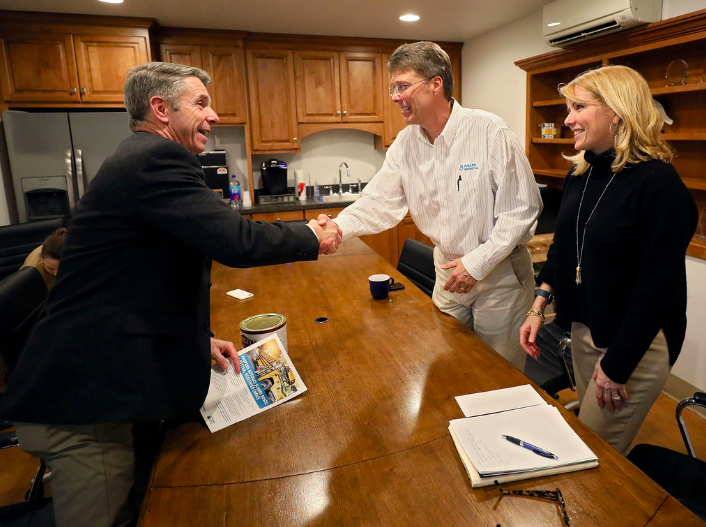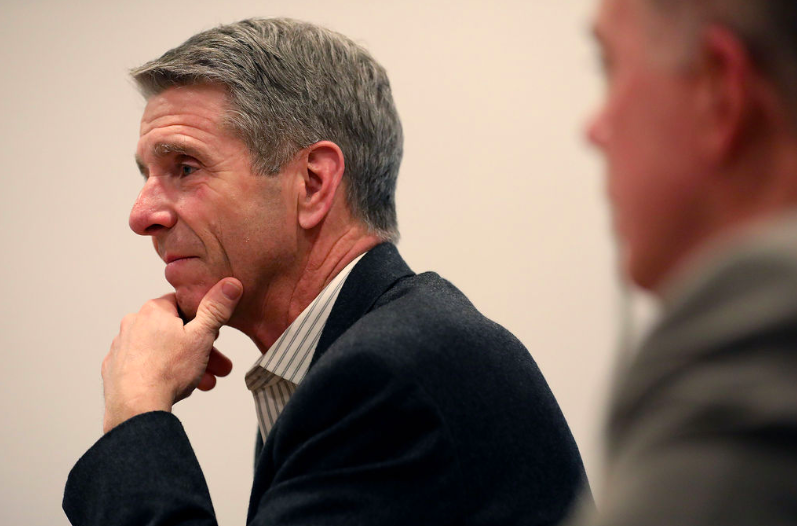Congressman Rob Wittman Visits Phillips Energy, Talks Energy Policy, Propane and Trends in Washington

During visits with constituents and businesses throughout the first Congressional district last month, Rep. Rob Wittman spent time at Phillips Energy’s Gloucester Point office and showroom to talk all things energy and trends in Washington.
Wittman applauded President John Phillips and Vice President Elizabeth McCormick for continuing Phillips Energy’s legacy as a strong, family-owned business providing important jobs throughout the region from their Mathews, Gloucester and New Kent offices.
“I am a strong proponent of propane,” Wittman said. “I use propane personally in my home and know it to be an extremely valuable source of clean, reliable and affordable energy. Propane has a low carbon footprint and is an important energy source for families and small businesses.”
“As an environmental health specialist, I know the importance of clean energy,” Wittman added. “It is going to take innovation and creativity to reach our energy goals – and I am working in Congress to dispel myths and educate the public on the creative and alternative ways to reduce greenhouse gas emissions. One of those ways is through the Congressional Propane Caucus, that engages Members of Congress on the important role that propane plays in meeting our current and future energy needs.”
The Congressional Propane Caucus serves as the forum for bipartisan engagement of Members of Congress, their staff, and the industry on issues of importance to propane businesses and their customers. The Congressional Propane Caucus is intended to keep caucus members up to date with developments in the propane industry.

“One of the things we are seeing right now, especially in state government, is the big issue of climate change,” said Phillips. “We are all for cleaning up the environment and want to do all we can as good stewards of the environment to run as clean vehicles as we can.”
But the trend, Phillips said, in Virginia is to focus on electric power.
“We’re really fighting hard in Richmond for alternative fuels,” Phillips said. “One of the things that has been a struggle is the administration wants to make school buses and all vehicles on the highway electrified.”
Propane, though, has a wonderful story to tell.
“We’ve got over 200 buses in the state running on propane right now, with more to come, and we have 18,000 across the United States,” Phillips said. “The cost of an electric bus is $360,000, on average. A propane bus is $90,000. You have about a 120-mile range in an electric bus and you have about 400 in a propane bus.”
Phillips Energy and other propane businesses have been telling that story, Phillips said, and working to get some energy funding pointed toward alternative fuels.
“But we can’t seem to gain any traction with those numbers,” Phillips said.

Promoting electric as the only green solution, Wittman said, has been the popular argument, not necessarily the logical argument for creating a greener future.
“The carbon footprint that goes into making the batteries, maintaining those batteries, building the electric engines, is a much larger carbon footprint than the internal combustion engine,” Wittman said. Plus, “when you plug in (an electric vehicle), there’s a power plant somewhere that’s producing that electricity that might be burning coal, which is a lot dirtier than propane.”
Wittman said in Washington they have been working to dispel myths and educate the public on the creative and alternative ways to reduce carbon footprints by people and corporations, citing as an example the Trillion Trees Act, legislation that would plant one trillion trees globally by 2050 and incentivize the use of wood products as carbon sequestration devices.
